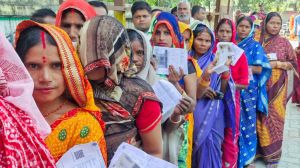Cow dung’ politics tear Swaziland apart
MBABANE, JANUARY 5: The purported theft of a piece of cow dung by the Speaker of Swaziland's National Assembly has plunged the small south...

MBABANE, JANUARY 5: The purported theft of a piece of cow dung by the Speaker of Swaziland’s National Assembly has plunged the small southern African kingdom into an unprecedented political crisis – and underlined unresolved contradictions between traditional African and modern constitutional law.
King Mswati’s Inner Circle is leading a campaign to have the Speaker expelled from the House for allegedly stealing dung from the Royal Kraal during an annual Thanksgiving ceremony on Christmas day.
Royalists claim that Mgabhi Dlamini intended to use the dung in mysterious rituals to either protect himself against evil or to enhance his position.
Members of parliament, non-governmental organisations and ordinary Swazis have joined the calls for the Speaker’s expulsion from the House.
Parliament, which appoints the Speaker, can force Dlamini to step down as Speaker, they cannot, however, force him to relinquish his parliamentary seat, which is elective.
But even if it tried to drop him, the House would be hard-pressed to justify its action, as the laws that guide it do not recognise witchcraft as an offence.
“Mgabhi will have to be tried traditionally, because his alleged crime is not political but traditional,” says former Prime Minister Obed Dlamini.
Predictably, the controversy has provided much-needed fodder for Swaziland’s unofficial opposition, whose efforts to whip up support for a transition to western-type democracy have been largely unsuccessful.
“This is a shame to the whole Swazi nation,” says Marco Musuku, the head of the People’s Democratic Movement (PUDEMO). “If the Speaker had believed in democratic choices, he would have delivered to the constituents and ensured that his people would re-elect him.”
The all-powerful Swaziland Federation of Trade Unions (SFTU) dismissed the campaign against the Speaker as cow dung politics’ which only served to divert attention from the country’s real developmental aspirations.
A growing number of educated Swazi’s appear to be getting impatient with some of the country’s old traditions, which they say are a hindrance to development.
“We call it tradition, but it is really nothing more than superstition,” a government journalist observed. “We must preserve our heritage, but surely, not at the expense of development.”



- 01
- 02
- 03
- 04
- 05




























